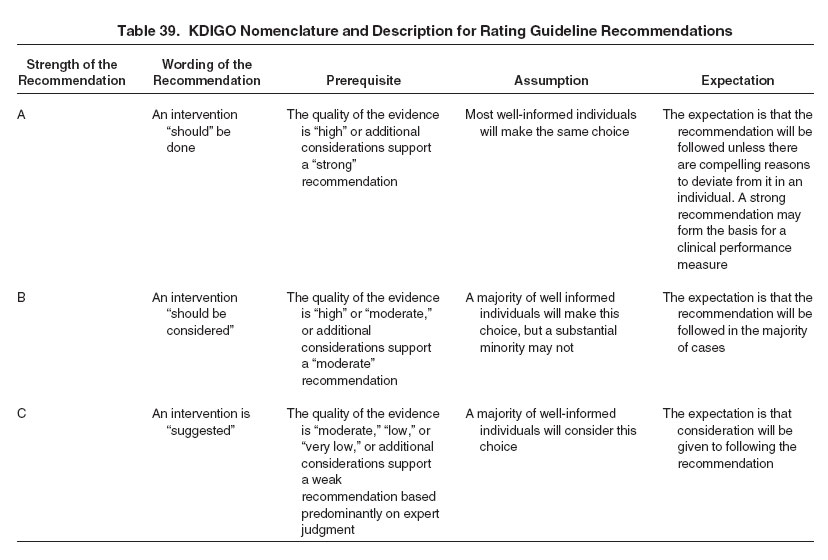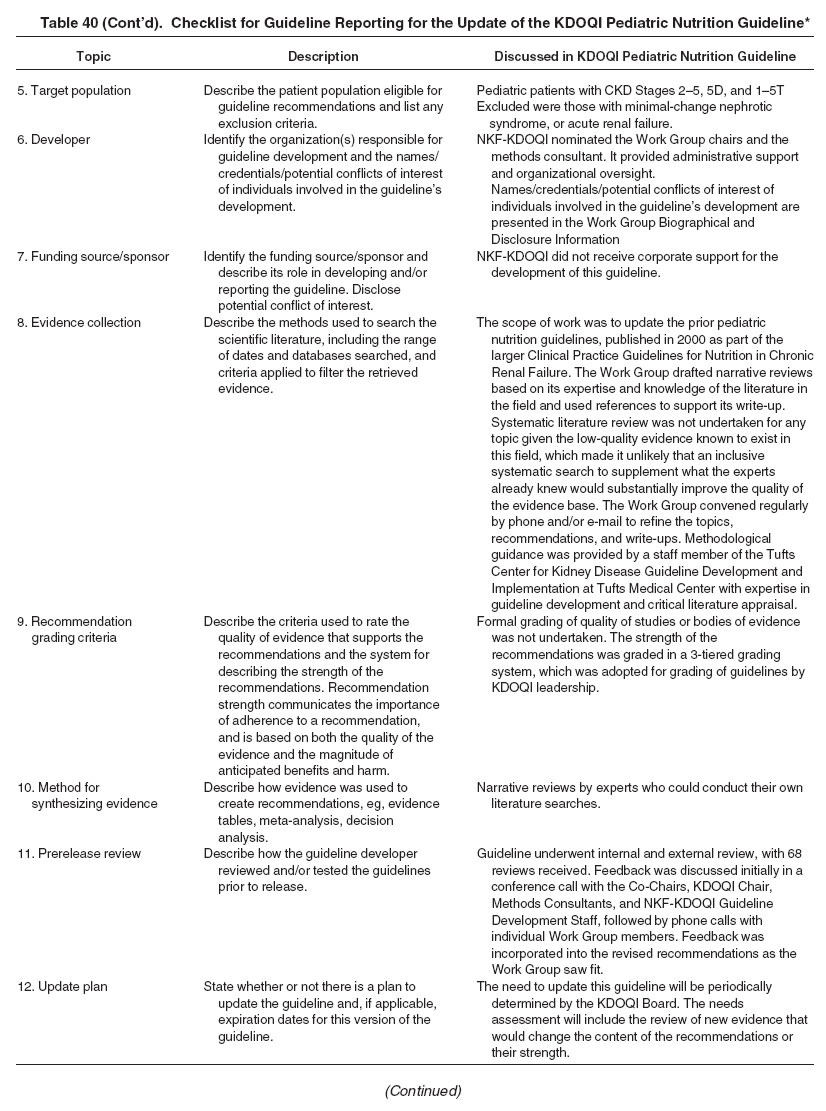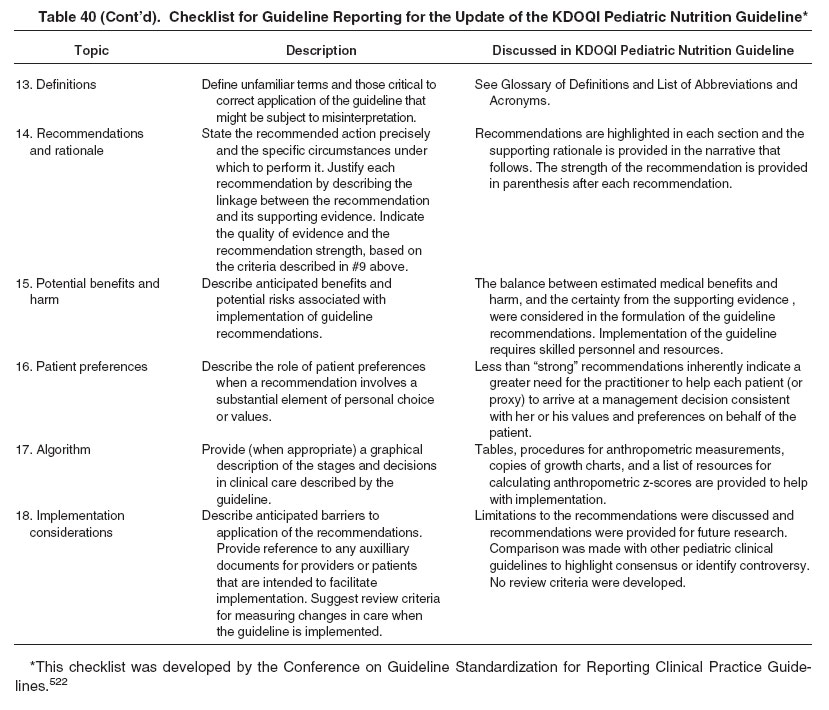
The KDOQI Clinical Practice Guideline on Nutrition and Children with CKD: Update 2008 was developed to incorporate new evidence and reference data that have emerged since the 2000 guidelines were published and to harmonize the recommendations with those of other guidelines that have since been issued. A scope of work was drafted by the Work Group Chairs and vetted by the NKF-KDOQI Board.
In the spring of 2007, Bradley A. Warady, MD, and Donna Secker, PhD, RD, were appointed Co-Chairs of the Work Group. Work Group members were selected by the Co-Chairs for their clinical and research expertise in related areas of nutritional assessment and therapy in children with CKD. The multidisciplinary group of pediatric nephrologists and dietitians included representatives from North America, the United Kingdom, and Europe. Method guidance was provided by Katrin Uhlig, MD, MS from Tufts Center for Kidney Disease Guideline Development and Implementation, with additional methods input provided by Ethan Balk, MD, MPH, also at the Center.
The Work Group drafted narrative reviews based on their expertise and knowledge of the relevant literature. References were used to support the write-ups. Systematic literature review was not undertaken for any topic given the low-quality evidence known to exist in this field. This paucity of evidence made it unlikely that an inclusive systematic search, to supplement what the experts already knew, would substantially improve the quality of the evidence base and the confidence that could be derived from it.
The Work Group convened regularly by telephone and/or e-mail to refine the topics, recommendations, and supporting rationale. The methods consultant provided ongoing guidance and support throughout the guideline development process by participating in the Work Group's teleconferences and e-mail communications and reviewing guideline drafts.
The KDOQI approach regarding grading of the strength of the guideline recommendations followed the approach adopted by KDIGO (see Tables 39 and 40). The strength of most guideline recommendations was graded as C to signify that they were based predominantly on the expert judgment of the Work Group. Overall, given the heterogeneity and often unique circumstances of the disease conditions in children with CKD and the great human cost of the disease in this age group, the Work Group adopted a perspective of erring in favor of issuing recommendations of potential use with lesser importance attached to potential monetary costs.
The public review process was initiated in September 2008. Participants were given 4 weeks to provide comments. Those who took part in the public review included members of the KDOQI Advisory Board and the NKF Council on Renal Nutrition; experts identified by the Work Group; representatives from nephrology, dietetic, or other allied health–related professional associations; organizations involved in the care of pediatric patients with kidney diseases; and professional individuals who requested to take part in the review process. Overall, all comments received were carefully considered by the Work Group Chairs and, with input from the Work Group, incorporated into the final guideline as appropriate.

